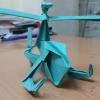Search Results
Showing results 1 to 20 of 40
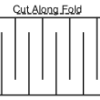
Great Openings: Slots, 35 Sense, and Hole In One
Source Institutions
These three short activities challenge groups to fit objects through paper and index cards: "Slots" presents the challenge for one learner to figure out which objects fit through a hole cut by another
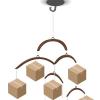
The Boxes Go Mobile
Source Institutions
Learners display their findings after a study of surface area and volume. They build a mobile to show a commercially available box and a constructed cubical box of the same volume.
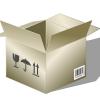
New Boxes from Old
Source Institutions
Learners determine the surface area and volume of two identical boxes, and then figure out the dimensions of a cubical box with the same volume.
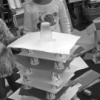
Apartment Buildings and More
Source Institutions
In this engineering activity, young learners investigate multi-level buildings.
Soda Pop Can Hero Engine
Source Institutions
In this demonstration/activity, water streaming through holes in the bottom of a suspended soda pop can causes the can to rotate.

Manufacturing Technologies: Making a Picture Frame
Source Institutions
Learners examine the manufacturing process while they make picture frames from cereal boxes.
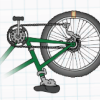
Pedal Power
Source Institutions
In this engineering activity, learners examine bicycle mechanics and gear ratios. Learners determine which gears will help them bike a set course in the shortest amount of time.

Paper Drop Design Competition
Source Institutions
Using paper, paper clips, an index card, and tape, teams of learners design flying devices to (1) stay in the air as long as possible and (2) land as close as possible to a given target.
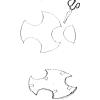
Zoom-A-Rang
Source Institutions
In this activity, learners design and build a Zoom-a-rang using everyday materials. Experiment with different materials and Zoom-a-rang designs to see how they fly.

Tessellations
Source Institutions
In this activity, learners will engineer a new shape and use it to create a new pattern with no wasted space.

You're Grounded
Source Institutions
In this engineering activity, learners test the stability of towers they build out of cups, discovering that structures with more mass in the base are more stable.
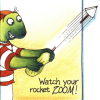
Zoomers
Source Institutions
In this activity, learners build their own rockets from paper, coffee stirrers, and tape. Learners discover that when anything flies, air pressure is always involved.

Uncanny Motion
Source Institutions
In this activity, learners explore motion and airflow by setting two aluminum cans on their side and blowing air in-between them.
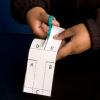
Make and Fly a Helicopter
Source Institutions
Learners follow the template to build and fly a paper helicopter.

Marshmallow Models
Source Institutions
No glue is needed for learners of any age to become marshmallow architects or engineers.

Hot Stuff!: Investigation #4
Learners test two jars containing soil, one covered and one open, for changes in temperature. After placing the jars in the Sun, learners discover that the covered jar cools down more slowly.

Dripping Wet or Dry as a Bone?
Learners investigate the concept of humidity by using a dry and wet sponge as a model. They determine a model for 100% humidity, a sponge saturated with water.

Hot Stuff!: Investigation #1
Learners test two jars, one containing plain air and one containing carbon dioxide gas, to see their reactions to temperature changes.

Hovercraft Racers!
Learners build a simple hovercraft using air from a balloon to levitate a craft made from a compact disc (CD).

